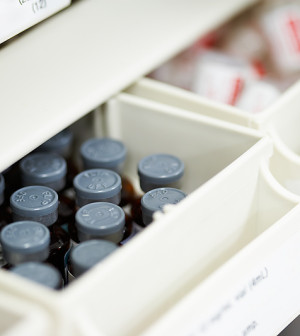- 8 Ways to Increase Dopamine Naturally
- 7 Best Breads for Maintaining Stable Blood Sugar
- Gelatin vs. Collagen: Which is Best for Skin, Nails, and Joints?
- The Long-Term Effects of Daily Turmeric Supplements on Liver Health
- Could Your Grocery Store Meat Be Causing Recurring UTIs?
- Are You Making This Expensive Thermostat Error This Winter?
- Recognizing the Signs of Hypothyroidism
- 10 Strategies to Overcome Insomnia
- Could Artificial Sweeteners Be Aging the Brain Faster?
- Techniques for Soothing Your Nervous System
Some Diabetes Drugs May Affect Cancer Risk in Women: Study


A certain type of diabetes drug may lower cancer risk in women with type 2 diabetes by up to one-third, while another type may increase the risk, according to a new study.
Cleveland Clinic researchers analyzed data from more than 25,600 women and men with type 2 diabetes to compare how two groups of widely used diabetes drugs affected cancer risk.
The drugs included “insulin sensitizers,” which lower blood sugar and insulin levels in the body by increasing the muscle, fat and liver’s response to insulin. The other drugs analyzed were “insulin secretagogues,” which lower blood sugar by stimulating beta cells in the pancreas to make more insulin.
The use of insulin sensitizers in women was associated with a 21 percent decreased cancer risk compared to insulin secretagogues, the investigators found. Furthermore, the use of a specific insulin sensitizer called thiazolidinedione was associated with a 32 percent decreased cancer risk in women compared to sulphonylurea, an insulin secretagogue.
However, there were no significant differences between men who used insulin sensitizers or secretagogues, according to the study published online Dec. 5 in the journal Diabetes, Obesity and Metabolism.
“What this study shows us is that using insulin secretagogues to increase insulin production correlates with an increased cancer risk in women with type 2 diabetes,” study leader Dr. Sangeeta Kashyap, an endocrinologist and associate professor of medicine at Cleveland Clinic’s Endocrinology and Metabolism Institute, said in a clinic news release.
“By contrast, insulin sensitizers cut insulin levels and can decrease cancer growth. So, clearly, when prescribing anti-diabetic medications, it’s important to consider the impact a drug has on fueling cancer growth,” Kashyap added.
While the study found an association between specific types of diabetes drugs and higher or lower cancer risk in women, it did not establish a cause-and-effect relationship.
People with type 2 diabetes have higher rates of cancer diagnosis and recurrence than people in the general population, according to background information in the news release.
More information
The American Diabetes Association has more about diabetes and cancer.
Source: HealthDay
Copyright © 2026 HealthDay. All rights reserved.










